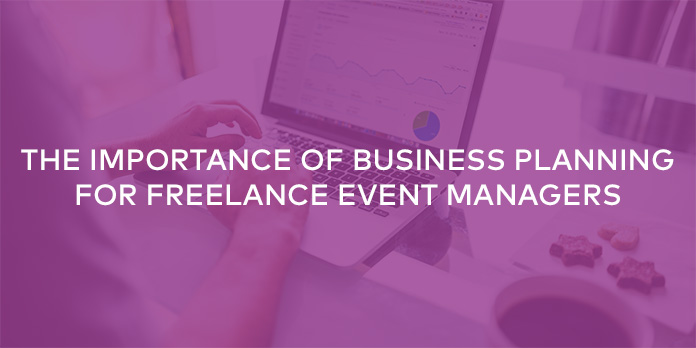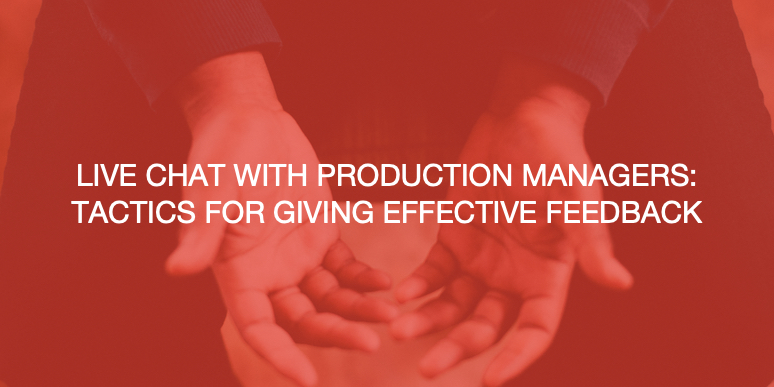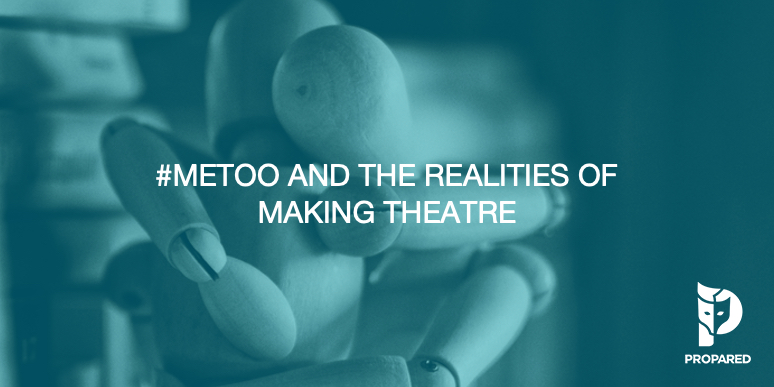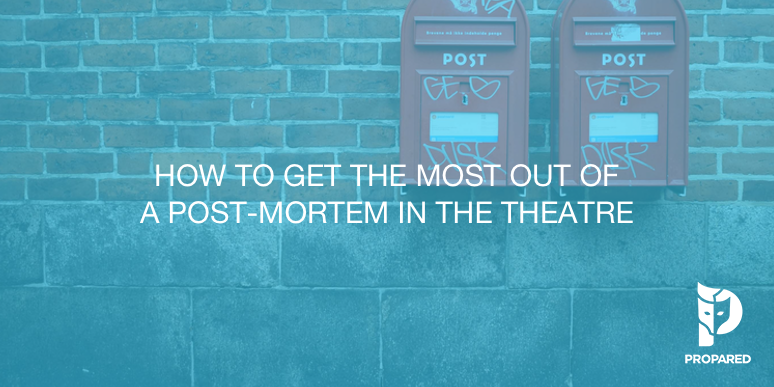
When I began freelancing in theater and events, I did what most young people do. I sent out a few emails and resumés and asked my friends for some connections. It was enough to get the ball rolling. Most of my early gigs came from someone calling me who just needed a warm body to fill a spot. I found relatively steady work throughout the year, albeit a little repetitive, and so I kept at it. A few years in I started to realize I wasn’t growing in my career. I was simply surviving gig to gig. I had become a permalancer. As I got older, it became clear that I needed more. I needed more challenge, more variety. And maybe health insurance and a nest egg for retirement. Finding gigs with more responsibility wasn’t as simple as making a few overtures to my network. I needed a plan if I wanted to grow my business, my company of one. I just didn’t know where to start. Here’s what I learned on the way to building two fun, challenging, and growing companies.
1. I wasn’t Alone
Far from the first event professional to go through this transition, I was surrounded by freelancers everywhere. This was compounded by the fact that I had moved to a major metropolitan city (in my case, New York, mid 2000’s) and my colleagues all worked in some form of production or entertainment. We supported ourselves to get by while trying to build a resumé worthy of more complex work. In 10+ years, the industry hasn’t changed much in this regard. If anything, the freelancer model has expanded into more and more sectors of the economy. In fact, a recent poll conducted found that nearly 44% of U.S. adults had participated in some sort of transaction that falls under the heading of “gig” economy. But that’s another topic. The point being: I had a LOT of examples to draw on and plenty of people to talk with that shared my struggles. These conversations really helped me form some concrete ideas about what I wanted and didn’t want out of the next 30 years.
2. I had to shift my thinking
My background in production and stage management gave me a pretty specific perception of what I did. Events are primarily short term. We have a set series of challenges we need to tackle. We respond to changes in the moment as best we can. But we always have sight of the end; opening night, closing, event day, whatever. This can, almost by accident, lower our focus. We deal with what’s in front of us at any given time, and worry less about the bigger picture. This isn’t necessarily wrong. Plenty of colleagues and good friends have built their careers this way, moving from one project to the next. But it’s important to understand the difference between the two ways of thinking. In one, you focus on the journey. In the other, you focus on the destination. Ask yourself: what’s your end goal? Do you even want to know what it is? For me, I needed to know.
3. I needed to be more than my Primary Job Skill
There were (and still are) hundreds, if not thousands of highly qualified, employable event managers around me. Some probably much better than me, too. So I had to figure out a way to differentiate myself from the pack. What could I provide to an employer that would potentially be of greater value than other talented freelancers? The first thing I did was take on more varied work. The more I could do, the more jobs I could potentially be hired for, right? The downside to this is developing a reputation as someone who does lots of things well but nothing exceptional. So what else could I do to make myself stand out? Words like “professional,” “transparent,” “legal,” “trustworthy,” “expertise,” and “peer” topped my brainstorm list. I realized that I wanted to be viewed as a partner in producing events, not simply a warm body. Hence – business, not gigs.
4. I am a Business of One
Once I decided I needed a fuller understanding of the scope of my career, I started to approach my gigging as my business. I was still a freelancer. I hadn’t changed the reality of the work I was getting. But I started lifting my eyes a bit beyond the next gig and the next. I was a business that needed to strategically plan for the long term. This meant looking at more traditional frameworks to learn about all the functions of a business. Most corporate structures are made up of many people and departments. They each tackle different functions, all of which are critical to running the business successfully. As a freelance business of one, these functions were no less critical. I just had to do figure out how to do them all myself.
5. I Needed To Know more about the Business World
No, I didn’t enroll in an MBA program. But I did need a clearer picture of what the hell a business does. I reached out to corporate clients I had done event work with, I read business planning books, I created the most boring Internet search history I’d ever seen. I pulled out all the key functions and departments and made a list of topics I would need to address in my business. Here is that list.
- Legal
- Insurance
- Contracts
- Finance
- Budgets
- Retirement
- Taxes
- Invoicing
- Purchasing
- Operations
- Career Goal Setting
- Efficiency
- Tools
- Standard Operating Procedures
- Marketing/Public Relations
- Competition
- Market Analysis
- Networking
- Referrals
- Internet Presence
- Sales
- Client Retention
- New Clients
- Human Resources
- Rules (Labor Laws, Union)
- Legal
- Performance Reviews
- Professional Development
- Training
- Certifications
- Production (what you actually do)
6. I Needed a Plan
I had a lot of ideas that I had to get down. My first business plan was a disaster. Full of lofty visions but thin on the particulars. How was I going to achieve the goals I set forth? The toughest part was getting started. I didn’t have anyone pushing me to work on it. I’m sure in retrospect, some of my friends and colleagues were shaking their heads at me. But once I got a few of my biggest ideas down on paper, it got easier. Every day, I’d add a few more pieces to the plan; what did I want to be know for, what would I offer, what did the market for my services look like, and how I was going to execute it. The nuts and bolts of the thing. Slowly but surely, my plan began to take shape. I began to focus on gigs that better aligned with my long term goals. I even said “No” a few times! My work began to take on my focus, both personally and professionally and it’s been nonstop ever since.
It’s been an amazing first chapter and there is so much more ahead. I’ve co-founded two companies that became home to my ideas and vision. They have transformed my work from “Business of One” to “Oh Yeah, These Are Real Honest-to-Goodness Registered Legal Entities.”
But the overall mission hasn’t really changed. This is the most recent thing I’ve learned since beginning this process. The work is never done. When I put the finishing touches on my first business plan, I simultaneously felt this great joy and dread. I knew that committing to doing it and finishing it was a great accomplishment. But a glance through the pages and I knew right away how much of it was already out of date. I had to come to terms with that. We all do if we want to run our own businesses. You’re not going to stop working to write your plan. Both things will happen simultaneously. And you’ll learn things along the way that will change your plan. Here’s where the very nature of event work has been so helpful for me. With so many short term projects, I’ve had plenty of time to reflect and adjust my plan to better represent who I am and what I want to do. Process, not product. It was the key step in shifting towards a more sustainable long term view of my career.
To you freelancers working in stage and event production – how do you do it? How do you build a sustainable career? Share what you’ve learned in the comments below.



